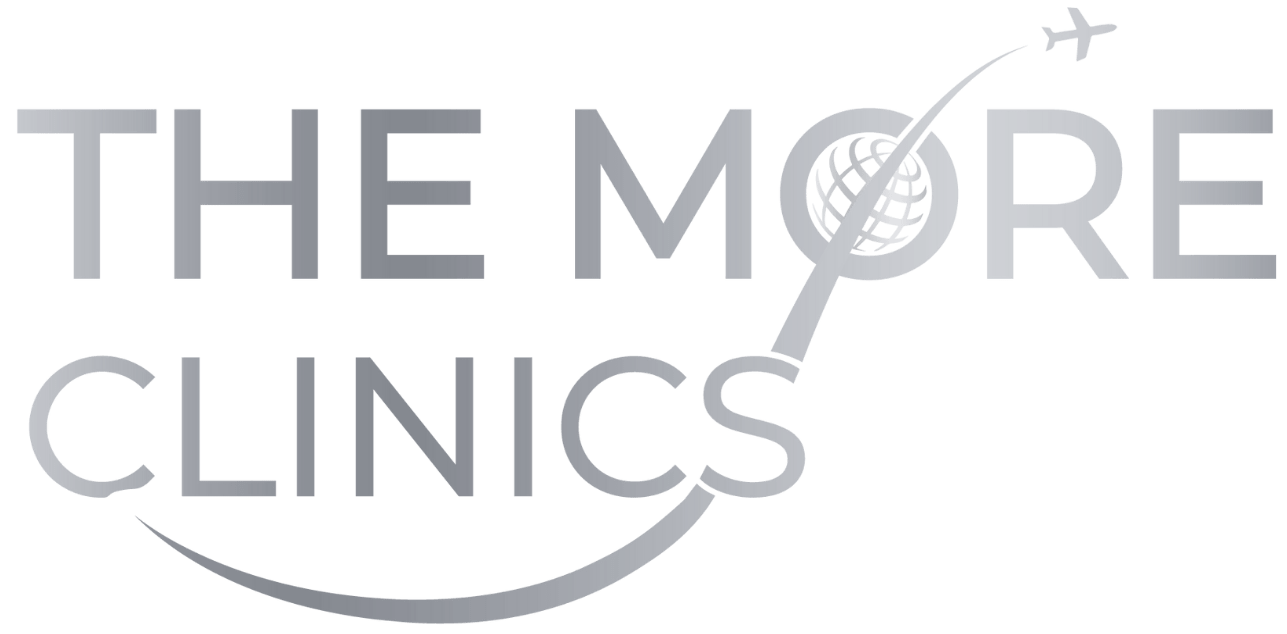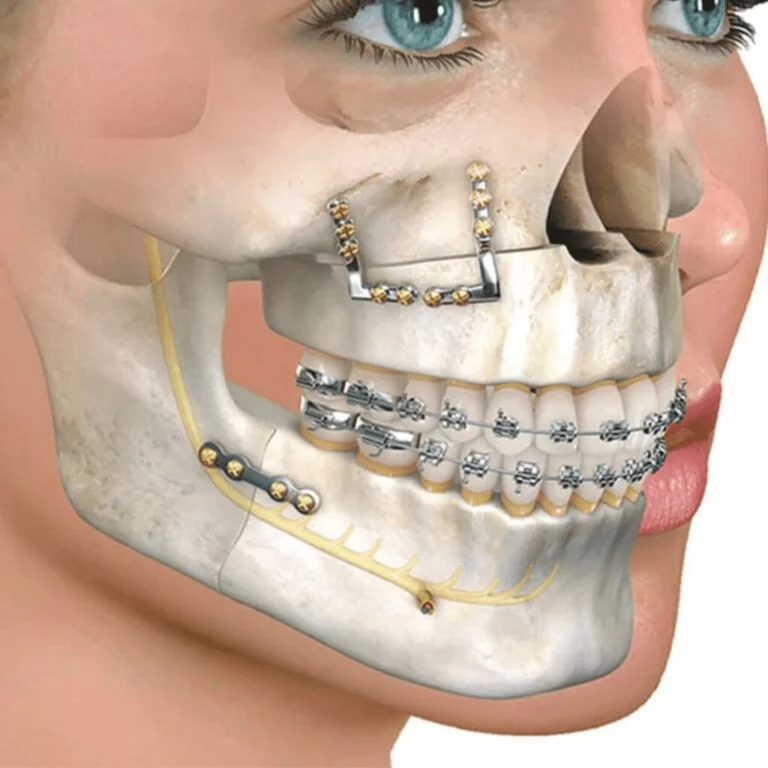The Ultimate Guide to Lasik Eye Surgery
The field of ophthalmology has been forever transformed by Lasik eye surgery. This revolutionary technique offers a permanent solution for individuals struggling with common refractive errors such as myopia, hyperopia, and astigmatism. By utilizing laser technology, LASIK corrects vision problems by reshaping the cornea, resulting in improved light refraction onto the retina.

What Is Lasik Eye Surgery?
Lasik, an acronym for “Laser-Assisted In Situ Keratomileusis”, is a popular surgical procedure designed to correct vision in people who are nearsighted, farsighted, or have astigmatism, presbyobia.
This outpatient procedure involves reshaping the cornea using a laser to correct refractive errors, thus reducing dependency on glasses or contact lenses. The surgery usually takes less than 30 minutes and is mostly painless, with minimal recovery time.
How Lasik Eye Surgery Works?
LASIK eye treatment works by reshaping the cornea, the clear front part of the eye. This allows light entering the eye to be properly focused onto the retina for clearer vision. The procedure is divided into two main steps.
First, the surgeon creates a thin, circular “flap” in the cornea using a microkeratome or a femtosecond laser. The surgeon then folds back the hinged flap to access the underlying cornea, also known as the stroma, and removes some corneal tissue using an excimer laser.
This particular laser, through a cool ultraviolet light beam, removes microscopic amounts of tissue from the cornea to reshape it so it more accurately focuses light on the retina.
After the cornea is reshaped, the surgeon lays the flap back in place, covering the area where the corneal tissue was removed. The flap seals to the corneal stroma naturally during the healing process following the surgery.
How Long Does LASIK Eye Surgery Take?
The LASIK procedure itself typically takes about 15 minutes for both eyes. The actual laser reshaping process lasts only a few minutes per eye, with some advanced systems completing the correction in under 30 seconds. However, patients should plan for the entire appointment to last about 1 to 2 hours, as this includes preparation, pre-surgical checks, and post-procedure observation to ensure everything went smoothly.
Does LASIK Eye Surgery Hurt?
LASIK surgery is generally painless. Patients receive numbing eye drops to ensure comfort during the procedure. Some may experience mild discomfort or dryness after surgery, but this usually subsides within a few days.
What to Expect During the Procedure for Lasik Eye Surgery
Read our Post: The Day of Lasik Eye Surgery
- Pre-Operative Assessment: The first step is an extensive eye examination with your surgeon. This involves checking your medical history, eye prescription and overall health. The surgeon will also measure your cornea’s thickness, shape, and any other potential issues.
- During the Surgery: You will be positioned lying down, looking up at a light. Numbing drops will be applied to your eyes to prevent any discomfort. The surgeon will create a corneal flap as explained previously, reshape the cornea, and then replace the flap.
- Post-Operation: Immediately after the surgery, you may experience mild discomfort, itching, or dryness in your eyes. The surgeon will provide you with protective eye-wear and medicated eye drops to alleviate these symptoms.
- Post-Op Checkup: A day after the surgery, you will have a follow-up appointment with the surgeon to check on your recovery progress.
- Continued Healing: Over the next six months, your eyes will continue to heal and adjust, and your vision will improve. Regular follow-ups will be scheduled during this period to monitor your progress.
Remember, each patient’s experience will vary slightly based on individual circumstances such as the degree of correction needed and overall eye health. Always consult your surgeon for personalized advice.
Benefits and Risks
Benefits of LASIK Eye Surgery
- Improved Vision: The most obvious and immediate benefit of LASIK eye surgery is significantly improved vision. In fact, studies show that approximately 96% of patients will have their desired vision after LASIK.
- Long-lasting Results: LASIK surgery offers long-term, stable results, with any minor follow-up procedures rarely needed.
- Quick Recovery: The time required for recovery after LASIK surgery is minimal. Most patients notice an improvement in vision by the day after surgery.
- Reduced Dependence on Corrective Eyewear: LASIK surgery can free you from the hassle of wearing glasses or contact lenses, saving you time and money in the long run.
- Increased Quality of Life: Many patients report an increase in their quality of life post-surgery due to the freedom and convenience improved vision provides.
Risks and Potential Complications
- Dry Eyes: Post-surgery, some patients may experience dry eyes, a condition which can be alleviated with eye drops and usually resolves within six months.
- Glare and Halos: Some patients may experience visual disturbances like glare, halos around bright lights, or difficulty driving at night, particularly in the first few weeks or months after the surgery.
- Flap Complications: The corneal flap created during surgery could lead to complications, including infection or excess tears if it does not heal properly.
- Undercorrections or Overcorrections: If too little or too much tissue is removed from your eye, it may not completely fix your vision. Additional corrective surgery might be required.
- Vision Changes or Loss: In rare cases, LASIK surgery can result in loss of vision that cannot be corrected with glasses, contact lenses, or additional surgery.
It is important to remember that the risk of serious complications is low, and for most people, the benefits of improved vision far outweigh the potential risks. However, it’s crucial to discuss these potential risks and benefits with your doctor before deciding to proceed with LASIK surgery.
Recovery
Read our Post: Lasik Recovery Guide.
Lasik Eye Surgery Recovery Timeline
- Day 1 (Surgery Day): On the day of surgery, rest and avoid straining your eyes. You may experience some discomfort, but this is normal. Make sure to use prescribed eye drops and wear protective eye-wear to avoid rubbing your eyes.
- Day 2-7 (First Week): Your vision should start to clear up within the first few days. A follow-up appointment with your surgeon will be scheduled within the first 48 hours to monitor healing. Continue using prescribed eye drops and avoid activities that might get water or sweat in your eyes, like swimming or intense workouts.
- Week 2-4 (Month 1): Most patients experience the most significant improvement during the first month. Regular activities can usually be resumed, but continue protecting your eyes, especially in dusty or dirty environments.
- Month 2-6 (Healing Stage): Though your vision might seem perfect already, the healing process continues. Regular follow-ups will be scheduled to monitor your progress. Minor issues like dry eyes or glare should start to resolve during this period.
Remember, this timeline is a general guide and individual recovery times may vary. Always follow your surgeon’s specific post-operative instructions.
Lasik Eye Surgery Cost
Read our LASIK COST GUIDE FOR 2023-2024
The decision to undergo lasik is not one to be taken lightly, especially when considering the associated costs. Lasik eye surgery cost can vary depending on factors like location, surgeon experience, and equipment used, but many patients find that the benefits outweigh the financial investment.
Lasik Eye Surgery Cost Comparison
Lasik Eye Surgery Cost in UK:
The average cost of Lasik eye surgery in the UK ranges from £1,800 to £4,500 per eye. The price may vary depending on the clinic, the surgeon’s experience, and the specific technology used. Additional factors such as preoperative evaluations and postoperative care may also affect the overall cost.
Lasik Eye Surgery Cost in USA:
In the USA, the average cost of Lasik eye surgery typically ranges from $2,500 to $5,000 per eye. This price range can vary based on factors such as the geographical location, the reputation of the clinic or surgeon, the technology employed, and any additional services or warranties offered.
Lasik Eye Surgery Cost Canada:
The average cost of Lasik eye surgery Canada is generally between $2,500 and $5,000 per eye. Similar to other countries, the exact price can be influenced by factors like the location, the surgeon’s expertise, the clinic’s reputation, and any personalized treatment options.
Lasik Eye Surgery Turkey Cost:
Turkey is renowned for providing high-quality medical services at affordable prices, and Lasik eye surgery is no exception. The average cost of Lasik eye surgery in Turkey can range from $800 to $1,800 per eye. This lower cost does not compromise the quality of the procedure, as Turkey is known for its advanced medical facilities and experienced eye surgeons.
Does Insurance Cover LASIK Eye Surgery?
In most cases, LASIK is considered an elective procedure and is not covered by insurance. Since it is classified as a cosmetic or non-essential surgery aimed at correcting vision, it typically falls outside the scope of standard insurance policies.
Lasik Eye Surgery Turkey: An Affordable and Trustworthy Option for Medical Tourism
Lasik Eye Surgery Turkey is a highly popular destination known for its state-of-the-art technology, skilled surgeons, and competitive pricing. Also, there are many reputable doctors and clinics that specialize in Eye Surgeries.
Finding a Reputable Surgeon for Lasik
When considering LASIK eye surgery Turkey, it’s essential to find a reputable and experienced surgeon. Here are some tips on how to choose one:
- Research online: Check for reviews and testimonials from previous patients.
- Ask for referrals: Talk to friends or family members who have had LASIK surgery and ask for recommendations.
- Meet the surgeon: Schedule a consultation to meet the surgeon in person and discuss any concerns or questions you may have.
- Check credentials: Make sure the surgeon is board-certified and has experience performing LASIK eye surgery.
- Inquire about technology: Ask about the equipment and technology used for the surgery, as this can affect the outcome of your procedure.
- Discuss costs: Be sure to understand all costs associated with the surgery and any follow-up care needed.
Last Words from the More Clinics
LASIK offers a safe and effective solution for vision improvement, with minimal discomfort and a speedy recovery. While there are rare risks and possible complications, the majority of patients enjoy enhanced vision and an improved quality of life after the procedure.
Our team of experienced professionals at The More Clinics Turkey is dedicated to providing state-of-the-art technology and experienced surgeons to provide the best possible LASIK Eye Surgery Turkey for our patients. . Take the first step towards visual freedom and clarity by reaching out to us now. We’re here to answer all your questions and guide you towards a brighter future with Lasik eye surgery. Don’t wait any longer! Contact us today to schedule your free consultation and discover if Lasik eye surgery is the right solution for you.
GET A FREE CONSULTATION!
Let’s Start Planning Your Treatment %100 Guarantee Results.
SOURCES:
Mayo Clinic. “Lasik Eye Surgery”
NBCI, National Library of Medicine: “What Is LASIK Eye Surgery?”
NBCI, National Library of Medicine: “The history of LASIK
?”
American Academy of Ophthalmology: “LASIK — Laser Eye Surgery”
HOW THE MORE CLINICS KEEP THE CONTENT UP TO DATE:
Our dedicated medical and editorial teams work tirelessly to stay informed about the ever-evolving world of health news. By rigorously tracking the latest research, clinical guidelines, and significant developments across various medical fields, they ensure that our content remains accurate, relevant, and up-to-date. This includes reviewing peer-reviewed studies, consulting with healthcare professionals, and monitoring advancements in medical technology. Their meticulous efforts and attention to detail allow us to provide you with trustworthy, reliable information that you can depend on to make informed decisions about your health and well-being.
However, we still insist on getting a healthcare professional’s opinion before you make any decision about your health. Consulting with a qualified expert ensures that the choices you make are informed, safe, and tailored to your individual needs.
Last Updated at January 01, 2025
Medically Reviewed by: Halil İbrahim Kaya, MD, Ophthalmologist






